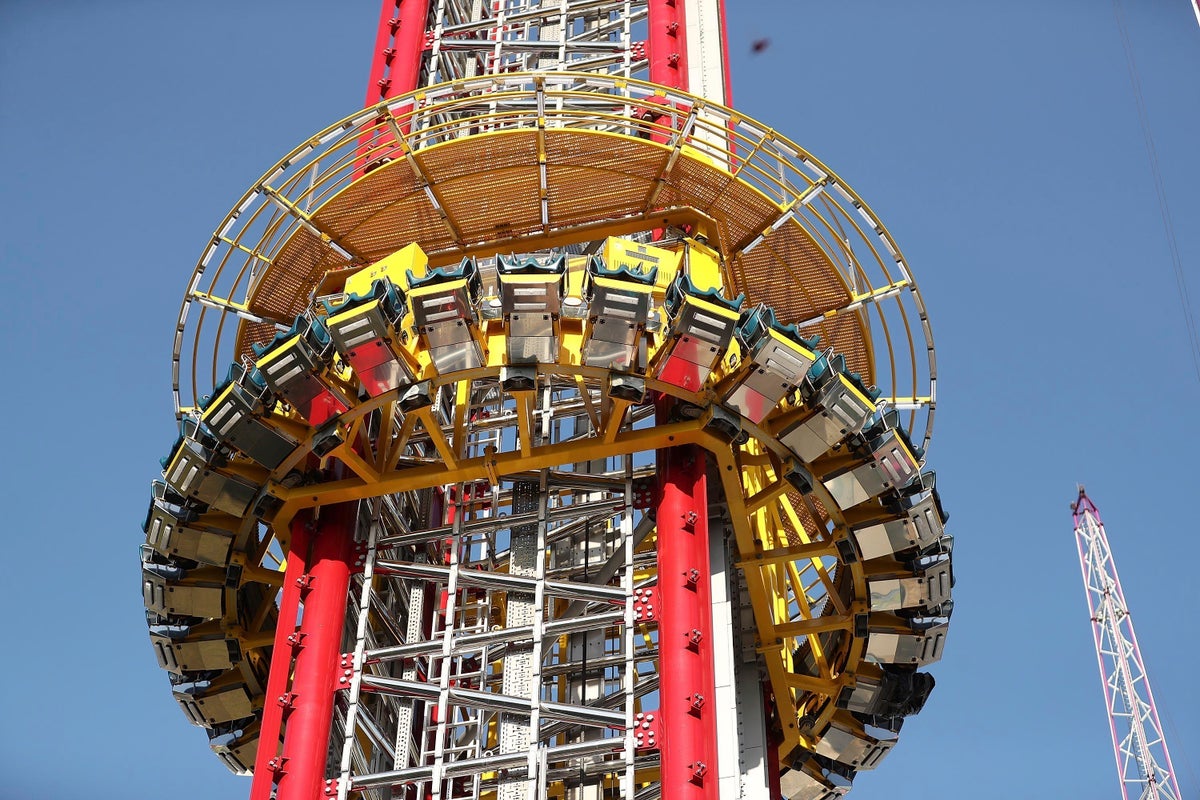
A Florida theme park will demolish a 430ft high ride that teenager Tyre Sampson fell to his death from earlier this year, it has been announced.
The 6ft 5in 14-year-old was killed while visiting Florida on a spring break trip in March with his football team from St Louis, Missouri.
Tyre’s family says he weighed 340 pounds while the maximum weight for the FreeFall ride at Orlando’s ICON Park was 287 pounds, according to its manual.
“We are devastated by Tyre’s death. We have listened to the wishes of Tyre’s family and the community, and have made the decision to take down the FreeFall,” said Ritchie Armstrong with Orlando Slingshot, which owns the ride.
“In addition, Orlando Slingshot will honour Tyre and his legacy in the classroom and on the football field by creating a scholarship in his name.”
The company says that the timeline for taking down the ride, which has been closed since the fatal accident, will be “determined by the approvals of all involved parties and regulatory entities.”
Billed as the world’s highest drop tower, the ride opened last December and only operated for three months before the accident.
The teenager’s family has sued Orlando Slingshot, ICON Park and the attraction’s manufacturers and installers in April in a case that remains ongoing.
The Florida Department of Agriculture and Consumer Services has released a report stating that inspectors found safety sensors on two of the ride’s seats had been modified to open between three and four inches wider than on other seats.
A probe into who made the modifications, which seemingly allowed the youngster to go on the ride, is ongoing.
Lawyers Ben Crump and Bon Hilliard, who are representing the teenager’s father, welcomed the news that the ride would be torn down.
“While this announcement is long overdue, the news today is a relief to Tyre Sampson’s grieving father, who has been advocating for this since the day Tyre fell to his death,” they said in a statement.
“The Orlando Free Fall ride never should have been permitted to operate under those faulty conditions. Theme parks, their parent companies, and regulatory agencies must do better to prevent this kind of tragedy from happening to any other family.”







